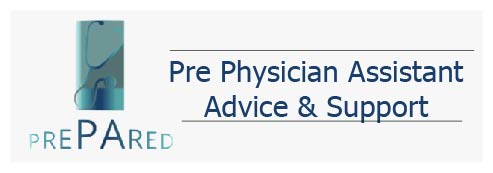Finally a PA school graduate, now what!?: How to ACE a PA job interview!

The interview is likely the most critical step your prospective employer will have to assess your abilities and suitability for a job. Your cover letter and résumé has already gotten your foot in the door, so your goal in the interview is to “argue” that you are the ideal candidate for this job, while you assess, more importantly, whether this is the best job for you. As a working PA that has transitioned between several different specialties, I want to share my insider tips for acing this critical step on your journey to landing your dream PA job.
Do your research about the job. If you’re in a tight job market or if you’re looking at a job in a big hospital organization, you are likely competing against a number of other candidates. Of course you picked and applied to a particular job for a number of reasons—location, specialty, work schedule—but what makes this job the one you want the most?? Doing your research about the practice or hospital organization may help you stand out from the rest of the pack. Does the hospital have a religious or specialty mission that really appeals to you? Is your potential supervising physician (SP) active in any research protocols or academic pursuits? Knowing these tidbits and being able to sprinkle them in during the course of the interview could help strengthen your case for why you are the best fit for that particular job. “I was an EMT for several years prior to PA school, so this position in the ED is a perfect fit for my experience and interests,” or “Even though I haven’t worked in Ortho before, my job in an urgent care clinic provided me the opportunity to diagnose and treat many Ortho problems.” Talk about how your background plays to this position’s or organization’s particular emphasis. Most importantly, be your authentic self. Do not pretend to be interested in something or stretch the truth about your background, just because you think that’s what the interviewer would like to hear. Even if you’re only passion is to get any PA job, expounding on what makes you a great PA will help you go far!
SO what makes you a great PA?
If you are interviewing with a gatekeeper HR rep, they may not know exactly what a PA is/does, so talk about the unique role of PAs within healthcare teams and how they are trained in primary care but also practice medicine in different specialties. Remind them that PAs work closely with their SP and don’t mind it! This is a good segue in the interview to squeeze in comments about your great teamwork skills and examples of teams with which you worked well in the past (these examples should also be highlighted on your résumé—see my PA résumé blog for tips!). The goal of the HR gatekeeper interview should be to show that you’re a) a team player and b) obviously not a sociopath
If you are interviewing with another PA, this is an ideal opportunity to gather intel on what exactly you will be doing, how the practice treats PAs, and if you feel like you’d fit. If you are going to be working closely with this person, it’s important to get a feel for whether you’d get along with this person on a professional level. Communicate what a great PA you are by telling your story.
Tell your story— Most interviewers begin with an open-ended question like “Tell me about yourself?” This is your opportunity to orate succinctly where you came from and the highlights of your academic/professional life. This is not the interviewer asking to hear your entire life story, so try to get your important points across in 1-2 minutes. For example: I am from Houston, TX, I went to PA school at UTMB and graduated in 2008. After working in family medicine for 3 years, I realized that I enjoyed working with children the most and was most interested in doing small surgical procedures. I really excelled in my surgery rotation in PA school and polished my procedural skills in family medicine. I am a quick learner and not afraid to ask questions…which is why I hope you will consider me for this pediatric surgery position.” This example highlights multiple reasons why you are a great PA and a great candidate for the job.
If you are interviewing with your potential SP it is critical to hone in on your chemistry as best as you can, potentially projecting out to how it might be to work together. It’s also important to get a sense of their management style—are they more hands-off or inclined to be a micromanager?—and see whether that matches what’s best for you. If you’re new to the PA profession or a particular specialty, it may be better if your potential SP is more hands-on and experienced in training PAs or other practitioners. If you are a veteran in a particular field, you are probably looking for autonomy more than anything else, so it’s important to assess whether you will be getting that once you’re fully on-boarded.
Most importantly, your goal in an interview is to figure out if this is the right job for you, too! One technique is to pretend you are the one interviewing the potential job so that you can feel like you are the one deciding if this is the best job for you. In most cases it’s better to continue to look for more options, than to take a job that the little-voice-in-your-head keeps telling you might not be the right fit.
Approaching the interview as an opportunity to get your questions answered will hopefully result in you coming away with enough information to make an informed decision. I’ve created a list of questions that you should feel comfortable asking, and hopefully be able to get answered during the interview:
Is there call? What is the schedule like?
What are my clinical responsibilities?
What are my administrative responsibilities?
What is the salary or compensation structure?
How many patients am I expected to see an hour? day? month?
What is a typical day’s schedule?
Who is my supervising physician (SP)?
Has my SP worked with a PA before?
Why did the last PA leave? Ask if you could speak with them directly?
What do they see you doing once you are fully trained?
Will there be a training period? What will that look like?
What kind of clinical support will I have? My own MA?
Is there a contract? Non-compete? Tail coverage?
What is the vacation, time off, PTO, sick leave policies?
What is the structure for raises/bonuses?
Is the position more team-based or autonomous?
Is this a replacement or expansion position?
What is the family/maternity/paternity leave policy?
Other random tips for interview day and attire:
Dress in business attire (this means a suit or blazer and skirt)
Hair should be clean, neat, and pulled back as necessary.
Be early to your interview.
Try to maintain good eye contact with your interviewer.
Smile and speak confidently.





